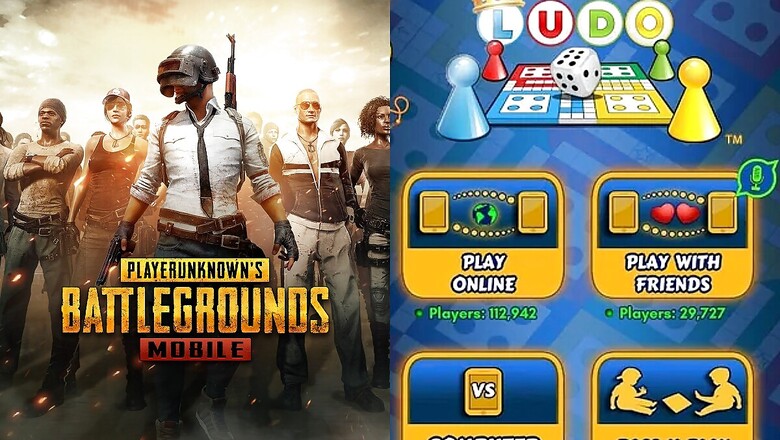
views
Over the past 25 years of the internet, those growing up in the ‘80s and ‘90s became the first to use computers and the World Wide Web in India. In most households, these users were largely youngsters studying in high school. Naturally, there was a clear divide between the ‘kids’ and the parents – an ever-existent tussle between the rebel tech whiz that ripped copies of GTA: San Andreas and Need For Speed: Most Wanted off torrent sites, and strict parents for whom the internet, and gaming in particular, were indulgent and oft-unnecessary luxuries. About 15 years later, the ethos of our Indian society’s community living is spotted in this very act – gaming. Case in point? PUBG Mobile and Ludo King.
Despite being two very different games, the reason why we single out PUBG Mobile and Ludo King is because of the impact that they have had across age groups, and democratised a field that was for the longest time never taken seriously in India. At the centre of all this is the internet, and the increasing affordability of data connectivity in India. This has not only brought together communities of users across a vast band of age groups, but also redefined what the smartphone meant for people across different cities and preferences.
PUBG Mobile: Blazing young guns
PUBG, first conceived as Playerunknown’s Battlegrounds, became a rage among PC gamers for bringing in the novel, race-to-survival Battle Royale mode. Soon enough, Brendan Greene’s PUBG Corp, under Korean developer Bluehole and Chinese publisher Tencent, brought in PUBG Mobile, and the rest is history. PUBG Mobile swarmed the mobile gaming leaderboards, and gave birth to gaming tournaments in India as well. Finally, in India, PUBG Mobile attracted big title sponsors, offering fringe gamers sizeable prize money for all the time spent in winning chicken dinners.
Through this phenomena rose India’s influx of tier II users, who began procuring smartphones at competitive prices and prepaid plans with high data allowances at super affordable rates. The key to PUBG’s community approach is its clan mode, where four players would come together – at times from different parts of the country – to take on other similar teams in all-out deathmatches. The impact became far-reaching, and today, Nodwin Gaming has wrapped up three years of broadcasting gaming tournaments via OTT platform, Disney+ Hotstar.
Akshat Rathee, co-founder and managing director of Nodwin Gaming, tells News18, “We have been broadcasting our gaming tournaments on multiple platforms such as MX Player and Voot previously, but finally now, we are seeing the ecosystem really take off. It has taken us about three to five years in developing a grassroots ecosystem to promote gaming the way we are today. Our viewership numbers on Hotstar today are in the millions.”
The million-odd viewership numbers have been further buoyed by the Covid-19 pandemic, when physical sporting events stood cancelled across the world. Rathee says that Nodwin’s gaming tournament, ESL India Premiership, filled up this void very effectively, and also had a trickle-down effect. “Through broadcasting these tournaments on major platforms, and with even parents having time at hand through the lockdown periods, we saw a holistic growth in interest in e-sports. The older age groups finally started understanding what the younger generation was hooked to, and saw the scale at which these tournaments are being held, which surely has a positive impact in the world of gaming,” he says.
At the centre of all this is easy availability of smartphones that can play the game smoothly, and of course, widely available and affordable internet. Today’s data plans offer internet at as low as Rs 3-4 per GB, and the effects of this are tremendous. Rathee claims that e-sports ranks consistently among the highest watched live sports in India, since the effects of gaming being broadcast on TV are far reaching and offering a concrete validation of gaming being more than just casual fritter-aways.
Rathee believes that the rise of internet-driven mobile usage is the single biggest factor behind promoting the gaming industry of India. “Think of PC gaming as test cricket, and console gaming as somewhat akin to one-day cricket matches. Mobile gaming, on this note, is T20 cricket – it does not take you exhaustive and extensive resources to become a mobile gamer, it is widely available to one and all, and it is also more instantaneous. It is this that has helped gaming move beyond the big cities and into the tier II cities and beyond,” he says.
“For PUBG Mobile, the principal language of gaming is Hindi. For the first time ever, the broadcast we did for the PUBG Mobile India Series in partnership with Tencent was not in English, but in Hindi. This has clearly breached the divide and the assumptions in this field – PC gaming was always looked at as an English-first entity, and required a level of knowledge and sophistication. All that is gone,” Rathee adds. It is this process of democratisation of the gaming industry that truly underlines what the internet has done for gaming, and the effect does not simply stop with PUBG Mobile.
Ludo King: Play anywhere, anytime
While the younger crowd preferred the thrill of games like PUBG Mobile and Call of Duty, an unassuming game on the other hand became a sensation over the past few months. Ludo, the old board game that was ubiquitous to Indian community households, took on an online avatar and shot to the top of popularity charts. In May 2020, Ludo King had over 189 million monthly active users and over 51 million daily active users – numbers that are enviable to major technology companies around the world. Built by Vikash Jaiswal, Ludo King is an Indian game that ticks all the ‘aatmanirbhar’ checkboxes, and alongside, also resides in phones of older users – people who would have largely never had games on their phones.
Today, Ludo King has well over 100 million downloads on the Google Play Store, and publicly available data by Sensor Tower pegs it among the top 10 most downloaded games in each of the past few months. With a simple interface, the ability to play against strangers as well as create boards with friends and family members, and affable stickers to motivate co-players or tease opponents, Ludo King embodied the growth of India’s internet ecosystem like no other service.
It also showed how increasing India’s internet penetration is becoming. Ludo King became an effective way for people to connect and while away time in the past few months, with families taking time out to play Ludo. It may not be gaming in the same, RGB-driven, hoodie-cloaked sense that stereotypes young gamers around the world, but is perhaps the most ideal candidate that underlines the impact that the internet has today on us as a society.
25 years later, internet is no longer a luxury – it is a necessity in the same way that entertainment brings respite to stress. It is a necessity for information, and at the same time, a catalyst that may just have woken India up to the possibility of taking gaming as a serious career option.
Editor’s note: This article is part of News18’s 25 Years of Internet in India series, where we capture how the state of mobile services, home broadband, internet services and content have evolved, particularly in the past few years. We try to understand what the internet means for us, be it for the new reality of work from home, for entertainment of the habit of ‘binge watching’, music streaming, online gaming and more.










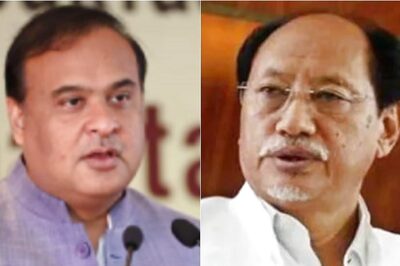

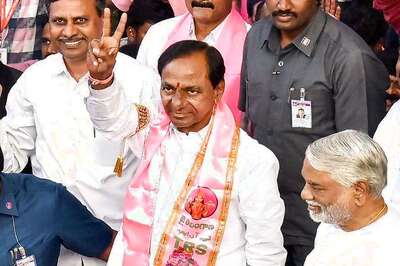

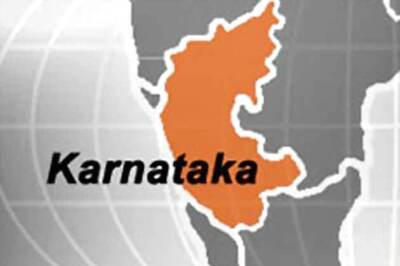

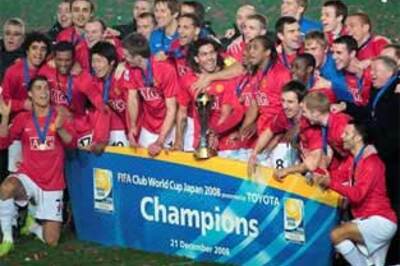

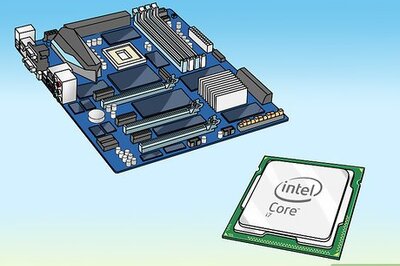
Comments
0 comment